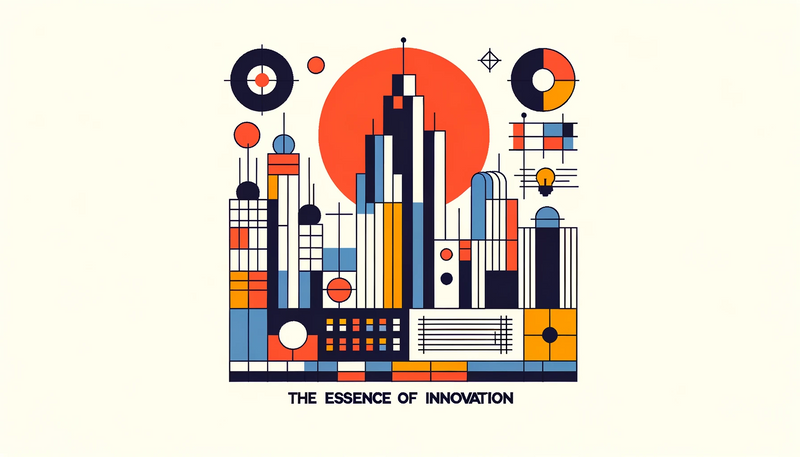Think back to the last time a salesperson truly understood what you wanted. It's probably been quite a while, hasn't it? What about ChatGPT or the personalized recommendations on Social Media? All these programs are trained to interpret your desires from your data.
We are at the beginning of an era characterized by a true abundance of data. Nearly every action we take generates data upon data. Marketers, companies, governments, etc., collect this information, and quantitative analysts search within it for patterns, intentions, new insights, and overall new knowledge. They transform these millions of individual data points into genuinely applicable information.
The reason this works so well in many cases is that these data represent concrete and understandable actions, cleansed of many emotional and irrational aspects, compared to surveys and conversations. They answer the question, "What am I doing or what have I done?" rather than "What do I intend to do?" As we all know, there can be a world of difference between the two. When my data is then compared and combined (behavioral cluster) with those who show similar behavior to mine, it forms a basis for future predictions that can be eerily accurate.
Living in an Algorithm-Led World
These software procedures, also known as algorithms, have permeated our world and in some cases, have already taken it over. Just not in the way we thought 20 years ago. These neo-robots aren't present in our world as mechanical and especially humanoid beings (Terminator-like general artificial intelligences); instead, we are living within theirs! The trick is to drop the term "artificial" and simply call them "intelligent" or "modern" systems.
They are everywhere: GPS for navigation, thousands of sensors in vehicles that report, measure, predict, and now even drive autonomously. Trains and subways included. Robot advisors at financial institutions, electronic guides, and personal assistants or sellers on Amazon, Netflix, Google, etc. And on the stock exchange? Nowadays, the majority (an estimated 80%) of all transactions on stock exchanges are no longer carried out by human traders but by software - intelligent software. Who can do without them? Many believe they can today, but probably not many more in the foreseeable future.
Pandoras Data Box
It almost seems as if Google, Amazon, and Facebook, the early protagonists of this mass-data-based economy, have once again opened "Pandora's Box," releasing not only hope but also the gift of foresight upon us humans. Like all great gifts, it can be used to make both positive and negative contributions to human life and the shaping of society - depending on motive and intent.
The societal changes looming over us are still hard to gauge. Not only has its form and shape emerged differently than predicted, but its consequences also differ from those outlined over the past 50 years. To attempt to understand the real magnitude, we must change our perspective. We should not only look at the needs of a consumer but also at the underlying processes and value chains up to the overarching structure and architecture of our economic system.
Patterns of thought and principles serve as fixed points in our minds, guiding our thinking and shaping our decisions. Identifying and reflecting on these Principles to Innovation is in the authors opinion from utmost importance for the upcoming transformation and the sole purpose of the website.
First list of thought patterns
Some of these essential thought patterns and principles crucial for the upcoming change are summarized below:
I. AI is everywhere, but a Terminator "like" general, humanoid AI is not our real threat scenario right now.
II. AI augments the human or specialist's capability. It's the combination of man and machine that creates the "new and improved". For example, in medical imaging, doctors currently achieve the best diagnostic we augmented with A.I.
III. AI doesn't just make work more efficient; it changes the way work is done altogether. "Anything a person can decide within a couple of seconds has the potential to be automated.
IV. People who accompany this transformation process have a lot of work and good economic development opportunities, while many jobs, not just "blue-collar", but especially "white-collar", will be excluded from the work process. The digital divide further widens as small teams with intelligent systems can now take over the work of current larger teams faster and better.
V. The biggest challange coming in the next 2-5 years will be in the authers view on our current organisations. The way we do business, the way we educate, the way we manage public and social affairs and the way we collaborate will undergo a massive transformation . This effects wow they operate, how we compete and how we cooperate down their value chain.
VI. In this rapidly evolving digital landscape, almost everybody will need to establish some kind of "AI factory" at their core. It's more than just using technology; it's about creating a foundation for making decisions based on data. Just like factories were key in the past for making products, AI factories now help us process information, understand insights, and make better choices. As data becomes the new currency, those equipped with a robust AI-powered core will be better positioned to make informed decisions and drive forward in an increasingly complex world.
VII. The divide already emerging in society will, without radical rethinking, grow much more extensive and more challenging. Economically strained households will face even more pressure. Upcoming AI-based innovations will exacerbate these flashpoints. A new thinking will be necessary to re-unite society.
VIII. One must utilize the latest technology. But AI and further technological progress in general are in urgent need of a parallel cultural, societal and ethical advancement. Society can not progress soley based on technology.
IX. Every idea that emerges is, in its essence, neutral; it is neither inherently good nor bad. It simply exists as a spark of human thought, a product of imagination and insight. The true evaluation of its worth or utility unfolds over time, through application, iteration, and real-world testing. It's not the idea's initial inception that determines its value, but the passage of time and its impact on the world that reveals its true merit.
X. Sharing also the ownership of ideas fosters collaboration and avoids the pitfalls of idolization and resistance. Claiming ownership of ideas amplifies resistance from others and can leads to fragmented solutions that are inferior for everyone.
XI. Innovation operates much like a two-stroke engine. The initial phase, a shift in perception, challenges our thinking, creates ideas and paves the way for reimagined realities. This individual mental shift is foundational. Only afterward can we progress to the second phase: actual change in reality. This step relies on collective action and team-driven innovation. It's a dance between reshaped perceptions and tangible outcomes, underscoring the essence of innovation.
XII. We can only achieve this by taking into account the true nature of humans. We must ask ourselves: What is the true nature of humanity? We are more than just our shells and need to move towards an economic model that considers not just our material needs but foremost our social, intellectual and spiritual nature as well.
XIII. Idleness does not create a new culture. Work is so much more than just satisfying material needs. Providing for oneself is the foundation of all self-worth and the beginning of freedom and self-determination and the first step of the service to society.
XIV. Even in the age of A.I. all individuals should strive for mastery. In fact, all evolving systems must aim for excellence - we and our creations! Today, one should be a step ahead or better than yesterday. Mastery is pivotal to development, elevating every facet of our journey.
XV. Every significant system we admire today started as a small yet harmonious and effective mechanism. It's essential to understand that for a system to scale successfully, it must first operate well on a smaller scale. Simply expanding a flawed system will inevitably lead to failure. Thus, the initial harmony and efficacy of these foundational systems were paramount to their eventual grandeur and impact. Great systems underscores the principle: begin small, ensure harmony, and then think expansively.
XVI. The progress of society is the sum of many small actions and processes. The day-to-day actions of every individual. Our culture must evolve through the participation and abilities of each and every individual, not through the efforts of just a few.
XVII. The idea of a universal basic income may sound appealing, but it could worsens societal conditions because it misses the importance of every individual's work as a contribution to the foundation of our society. Just addressing material security may lead to intensified segregation (employed versus welfare recipients), even subtle and open degradation of fellow humans. What we need is a alternative to the universal basic income. A society that promotes and expands the opportunity for work being beneficiary for all people - not a policy which diminishes it. Everyone must be able to live off their earnings and not rely on handouts.
XVIII. The significant tax burden on labor is one of the main obstacles in the EU. We must completely stop taxing labor before all basic needs are met (the case for companies). Only real surpluses should be taxed.
XIX. To handle this change well, it's crucial to have clear principles and stick to them. Navigating through countless details can be daunting. Instead, having solid core principles can act as a guiding light. This strategy works for both humans and machines. By grounding ourselves in these foundational beliefs, we can make steady progress and remain strong amidst changing circumstances.
This list signifies the start of our journey to craft narratives, pinpoint principles, and shed light on directions in this age of data and Artificial Intelligence. Our aim is to reshape perceptions and propel progress towards a better and brighter tomorrow.
Just as we work daily on technological progress, we must also strive daily to advance ethical progress. This is aptly expressed with the metaphor of the bird - "Science and ethics are the two wings of culture." As long as both wings are not equally strong, or one is atrophied, the bird, our culture, won't fly and won't progress!


